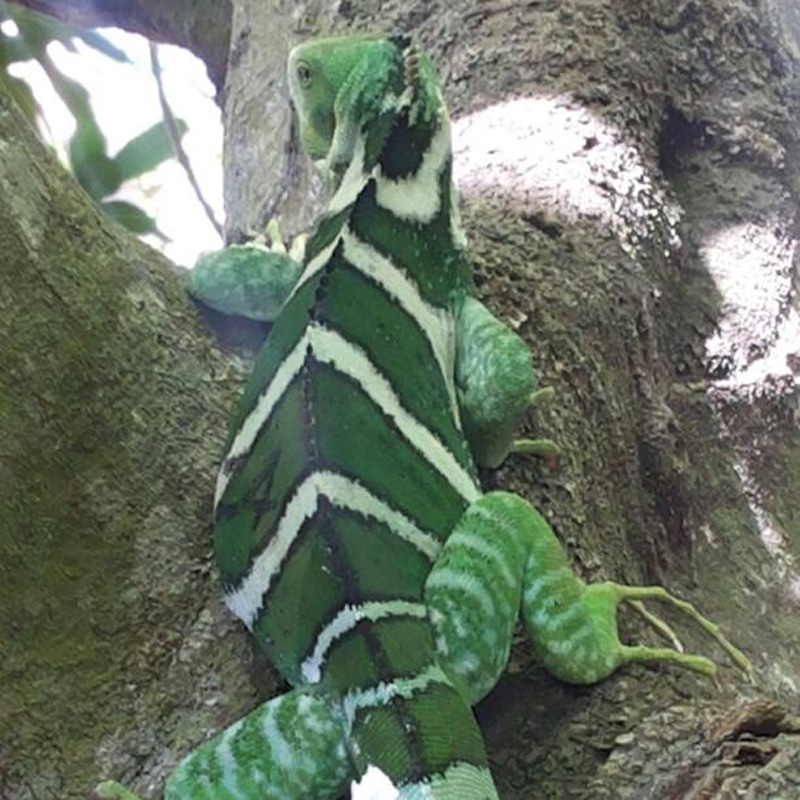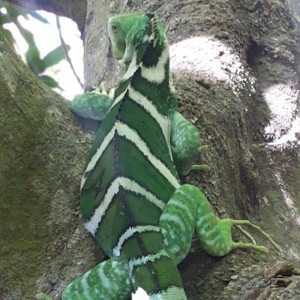On the morning of 15th May, the small village of Yanuya was abuzz with the village women hurriedly preparing breakfast for the visitors –an entourage made up by staff from National Trust of Fiji, Kula Eco Park, Nature Fiji and Mamanuca Environment Society who travelled to the island the day before to await the arrival of the iguanas. The traditional ceremony was conducted upon the arrival of the Iguanas that morning brought in by representatives from Nature Fiji, National Trust of Fiji and San Diego Zoo Iguana specialist and Kula Eco Park Director, who were bringing back home the endangered Fiji Crested iguana to be released on famed Monuriki Island. While this day brought closure to a project started 5 years ago, the day also marked a more significant beginning for the 32 Fiji Crested iguanas to be released on Monuriki Island. “Hatched and raised at Kula Eco Park in Korotogo, this is the first time that Fiji crested iguanas and the first Fiji endangered species ever to have been bred in captivity and then introduced into the wild in Fiji’ (Fiji Times). In 2010 to 2012, the National Trust of Fiji along with their partners collected 20 Iguanas to be captive bred at the Kula Eco Park, this approach was imminent to the survival of the rare Monuriki Iguana population. Surveys conducted from 1998 to 2003 saw a dwindling Iguana population to a mere estimate of 30 – 60 iguanas.
Once the traditional ceremony was over, it was time to transport the Iguanas to nearby uninhabited Monuriki Island. Three boats ferried the group across to Monuriki Island. The Iguanas which were kept in aerated boxes were brought out in breeding pairs, which experts agree will enhance the mating and reproductive chances for these Iguanas. All the 32 Iguanas were tagged with a transmitter and chip to allow for easy capture and identification during further research. The Iguanas were placed in pairs in carefully selected areas and favourable food trees such as the Vau and Vutu tree.
Monuriki with rocky rugged terrain is a far promise from the Iguanas comfort in its cage at Kula Eco Park. However months prior to the release the Iguanas were excised exposure to their natural habitat and also fed leaves from time to time to at least attune them to the wild. Their survival now also hold more promise without competition from the introduced goats to the island that have now been completely eradicated as part of the conservation program for the Crested Iguanas.
A week or so after the release, San Diego Zoo herpetologist, Stesha Pasachnik and team from National Trust of Fiji and Nature Fiji will visited the iguanas on Monuriki Island to assess how well the 32 Fiji Crested Iguana is adapting on its island home.



